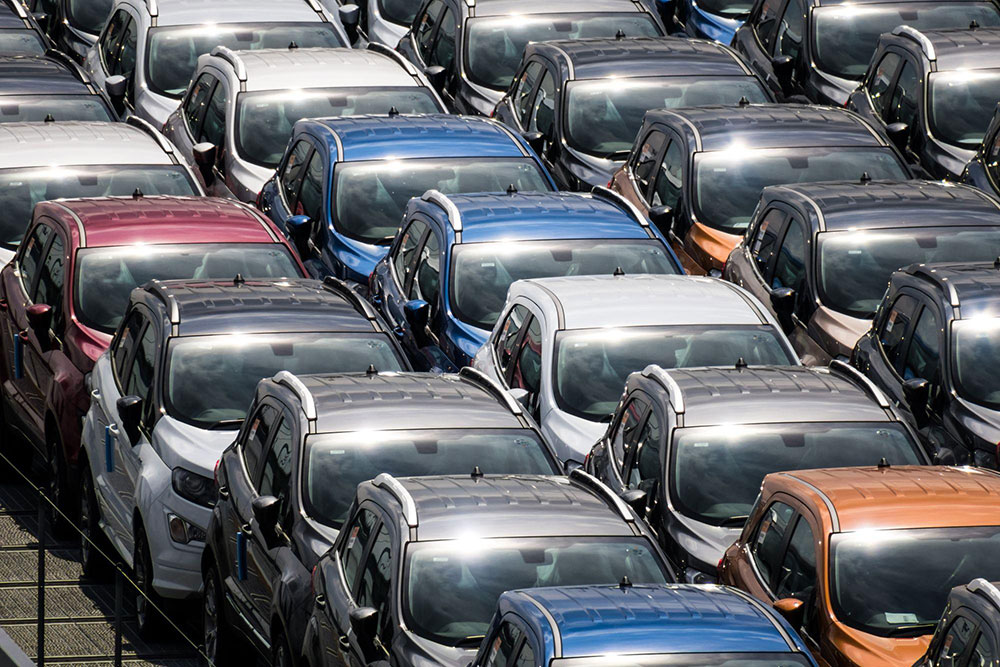THE UK new car market fell 4.4% in September to 328,041 registrations, according to the latest Society of Motor Manufacturers and Traders (SMMT) figures.
The numbers made it the weakest September since the introduction of the dual number plate system in 1999 and some 15.8% lower than the 10-year average of around 390,000 units for the month.
The poor monthly performance follows very low volumes recorded in September 2018 and 2019, when regulatory changes surrounding the new WLTP emissions testing regime delayed vehicle certification and caused supply problems across Europe.
Some brands hit by these factors previously saw substantial growth in September 2020, but total registrations still fell well short of previous years and follow an erratic period of market performance since emerging from lockdown.
Private registrations fell by 1.1% over the month. Demand from business was also muted, with around 10,000 fewer cars joining larger fleets, representing a -5.8% decline.
More encouragingly, battery electric and plug-in hybrid car uptake grew substantially to account for more than one in 10 registrations as new models continue to increase consumer choice.
Demand for battery electric vehicles (BEVs) increased by 184.3% compared with September last year, with the month accounting for a third of all 2020’s BEV registrations. Even with this growth, however, meeting accelerated ambitions for uptake of these vehicles will require government to get behind a truly world-class package of incentives – alongside binding targets on infrastructure to reassure consumers that recharging will be as easy as re-filling.
The relaxation of COVID lockdown restrictions from June saw consumers return to showrooms and factories restart production lines, after one of the bleakest periods in the sector’s history.
The market still faces continued pressure, however, with myriad challenges over the next quarter. Brexit uncertainty and the threat of tariffs still concerns the industry, while the shift towards zero emission-capable vehicles is demanding huge investment from the sector, and stalling fleet renewal across all technologies is hampering efforts to meet climate change and air quality targets now.
Additionally, consumer and business confidence is threatened by the forthcoming end of the Government’s furlough scheme, an expected rise in unemployment and continuing restrictions on society as a result of the pandemic.
With little realistic prospect of recovering the 615,000 registrations lost so far in 2020, the sector now expects an overall -30.6% market decline by the end of the year, equivalent to some £21.2 billion2 in lost sales.
Mike Hawes, SMMT Chief Executive, said: “During a torrid year, the automotive industry has demonstrated incredible resilience, but this is not a recovery. Despite the boost of a new registration plate, new model introductions and attractive offers, this is still the poorest September since the two-plate system was introduced in 1999.
“Unless the pandemic is controlled and economy-wide consumer and business confidence rebuilt, the short-term future looks very challenging indeed.”
Lack of availability of new and used vehicles has also hampered sales according to Cox Automotive.
Philip Nothard, Customer Insight and Strategy Director, said many dealers reporting strong demand but just simply ran out of cars.
“Demand for new cars in September started strong but ended-up behind last year’s performance in the same period in 2019, considering, both 2018 and 2019 had a severe impact from the introduction of new legislations (WLTP & RDE).
“Constraints on car production on manufacturers continued to hamper supply which subsequently hindered the delivery of new car customer orders. Reduced consumer confidence and pressures on the fleet sector also both remain a crucial influence on the new car market.”
The latest ‘Market Tracker for Cars’ produced by Cox Automotive revealed that dealers reported that demand for used cars remained robust throughout September, with many reporting good financial performances and margins for the month.
Demand for used car stock remained high in September: Wholesale trade values remained ahead of 2019 for both September at 97.09% and post-lockdown (Jun 1 – Sept 30) at 96.95%.
Nothard added: “First-time conversions were also 3% ahead of the same period in 2019. Although volumes increased marginally in the month compared to the same period in 2019, overall volumes have remained down since lockdown lifted.
“The average age of vehicles in the wholesale market increased by 1.51% from 86.1 to 87.4 in September; while the average mileage reduced by around 3% to 62,510.”
Data from NextGear Capital, the stock-funding arm of Cox Automotive, also suggests similar trends with the average price-funded by dealers in September increasing by 21% to £9,388.74. This was an increase since lockdown of 2.3% month-on-month.
Nothard said: “Concern remains, however, for the final quarter of 2020, with ongoing supply constraints, economic uncertainly, reduced consumer confidence and lack of clarity on Brexit all combining to create caution amongst dealers.”










Leave A Comment